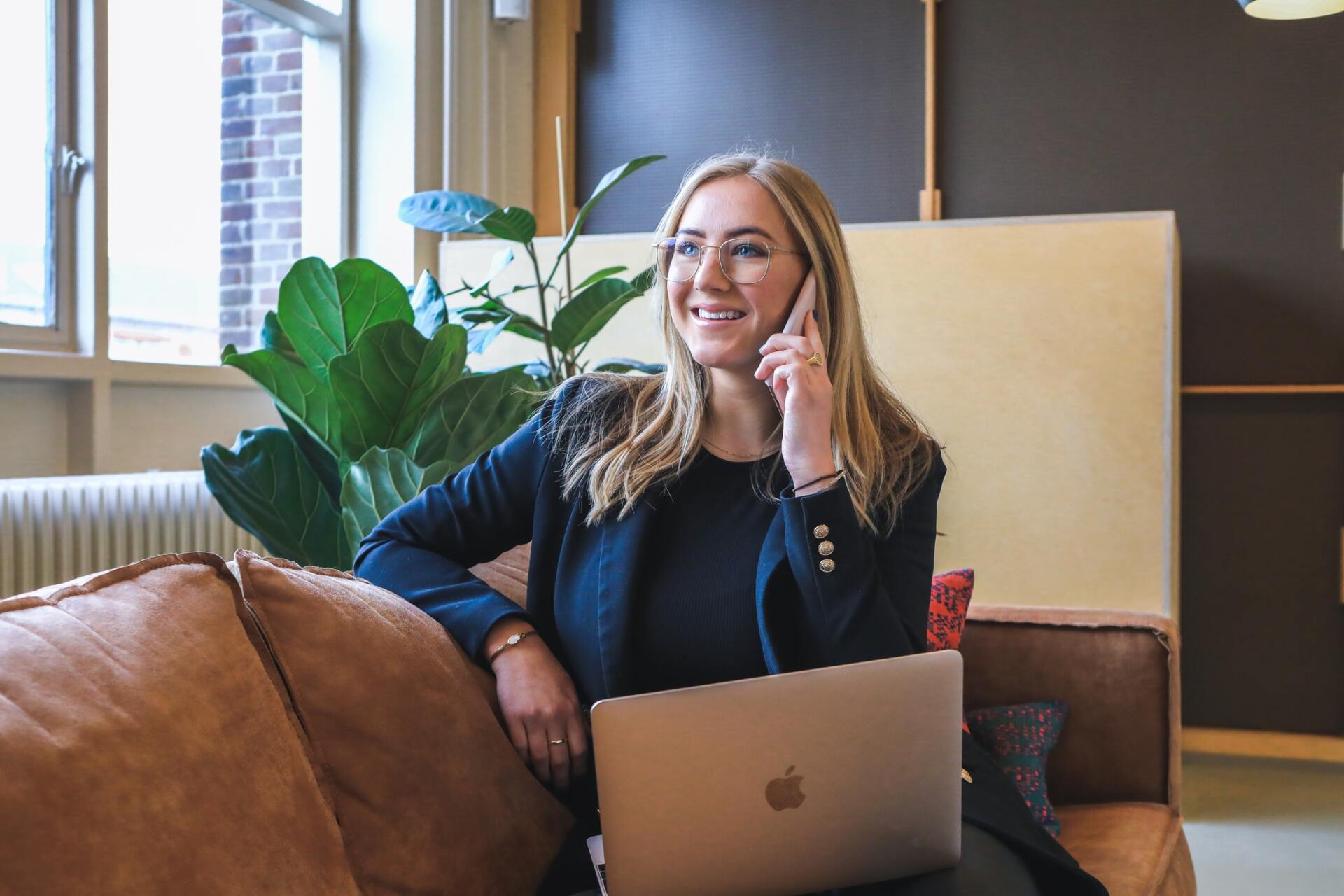**Elev Labs is in a legacy stage and this website is no longer being maintained.**
THE ELEV BLOG
Students have ideas—lots of them. We believe anyone with an idea should be able to see it through. That's why we manage a blog with stories of success, lessons learned, tips, and more. We let anyone with something to share use our platform.
RECENT POSTS

I am confident that just about everyone would agree that the year 2020 has presented a number of challenges for people all over the world. It came as quite the surprise when nearly every normal aspect of our daily lives became significantly altered. One day, I was attending in-person lectures with hundreds of students at school and the next day, I was on a flight home to endure what would be a several month break away from my college. For many, including myself, it became so easy to sulk over all of the missed time and opportunities that we thought 2020 held in store for us. With entering the new decade, so many of us created hopes, dreams, and ambitions, and in a matter of a few weeks, we were in what felt like an infinite stay-at-home lockdown. After being sent home, I tried to stay busy by investing more time into my school work. Each day, I’d spent hours staring at my laptop, trying to make sense of all of this extra time we had been given in quarantine. I felt the need to constantly be productive because otherwise, I’d feel like I was wasting my time. I wish I had realized earlier that taking time to relax is crucial to mental well-being, especially during these adverse times. Eventually, I’d learn to take long walks each day as a way to reduce the stress and anxiety of attending my now-online college. With all of these abrupt changes, establishing any sort of routine was difficult. By dividing up my time for specific tasks and allotting time for breaks in my schedule, I was able to exhibit some normalcy. After months of feeling like I finally had a grip on my “pandemic situation”, things changed. Due to my health, I was categorized as “high-risk” for COVID-19 and was unable to return back to school in-person. I watched all of my friends return to campus, while I stayed back at home, in order to protect myself from the virus. My illness was taking my college experience away from me. I had yearned for it throughout quarantine and it was heartbreaking to see people experience college, while I sat at home. However, looking back, I recognize the silver linings of quarantine and being home during college. The truth is I will never get this amount of time again with my parents and family, so I’m grateful for that. I’ve been granted time to pursue more endeavors, including Elev Labs and new hobbies, so I’m grateful for that. I’ve spent time becoming a better version of myself, so I’m grateful for that. Despite how notoriously bad 2020 has been, there has been some good in all of this. Maybe that’s why they say “Hindsight is 2020.” By reflecting on all of the events that have transpired in the last year, we now have a much better understanding of the elements in life that are most important to us. Whether that be prioritizing family after not being able to be around them or prioritizing studies after being granted more free time or whatever it may be, 2020 should be acknowledged as a pivotal year that caused many to grow and improve. It is essential that as we move into 2021, we continue to recognize that we are grateful and that there is always a light amidst the chaos and to keep flourishing through adverse times. Maxx Wexler is a junior at the University of Florida. She is also the Community Director at Elev Labs.

Online interviews are more widespread than ever. Colleges, companies, investors, and others deploy virtual platforms to understand prospects more intimately and add some context and humanity into the application process. Like anything in life, online interviews come with their benefits and their disadvantages. Although this shift has primarily occurred due to the COVID-19 Pandemic, we’ll likely continue to see an increase in online interviews. A virtual interview is your chance to show companies and institutions who you are beyond the numbers and statistics on paper; it’s your chance to “seal the deal.” An incredible interview can quickly move someone to the coveted “yes” pile. However, an unsatisfactory interview can even more easily move someone to the “no” stack. As a Co-founder of Elev Labs, I’ve virtually interviewed dozens of people in the past few months. On the other side, I’ve participated in many online interviews as a college applicant recently. Here are some tips to help you stand out amongst the crowd in your next virtual interview: Know what you’re getting into - While most interviews are conducted via a live platform like Zoom, some will be “on-demand interviews.” This means that a question or video will appear on screen, and you’ll be given a set amount of time to record an answer in video format. This video will then be sent to the company or school. To avoid any last-minute shakeups, find out your interview format ahead of time. Test your connection - This one may seem obvious, but you’d be surprised how many people have a poor connection during an online interview. Go and test your internet speed ahead of time. If you can, try to connect directly to the internet via ethernet rather than using WIFI. Also, try and limit the number of other devices on your network at the same time. If you do lag at all, make sure to ask your interviewer if they’d like you to repeat yourself. Framing matters - One of the more dynamic elements from online interviews is letting people into your home. It’s fascinating how much you can tell about someone from the pictures on their walls. Even more importantly, make sure that nothing you wouldn’t want your interviewer to see is in frame. Also, ensure that you are easily visible and no bright lights are in the background to cause an annoying glare. Take advantage - Arguably, the most significant benefit to a virtual interview is your ability to have notes up during the call. Feel free to have your resume in split-screen, or even throw some post-its up in the corner of your monitor if need-be. It’s important not to look like you’re reading. But having a few talking points in mind ahead of time can only benefit you. Not to mention that by doing this prep, you’re already getting your mind into “interview mode.” Be animative - The camera takes off 10 pounds of personality! We can’t see your body language or hear your tone as well virtually. Make sure that you’re clear and direct when expressing your emotions. It’s okay to laugh a little louder and smile a little wider. Obviously, don’t over-do it, but remember that the interview’s point is to add a human element to the process. As a bonus, speak slowly and clearly. This will ensure that if someone gets a surprise email or other distraction, they can quickly address it without losing much. Lastly, don’t forget basic etiquette on virtual interviews. It’s still important to dress well and to be early, for example. Ensure that you’re as authentic as possible, and do your research to show how passionate you are in the interview. Nine times out of ten, someone who comes across as passionate in a virtual interview will be the one who ultimately gets the job. Using these tips, you’re sure to find success in your next virtual interview. If you’re interested in more tips to help you succeed, sign up for The Lab Report , a new initiative by Elev Labs to help business students succeed. Good luck! You’ve got this! Max Coppola is a high school senior based out of Long Island, NY. He is one of the Co-founders of Elev Labs.

It’s been seven months since quarantine first started because of the pandemic. At first, I was thankful for the break, but the longer it went on, the more my perception of time became distorted. Now, with online classes and working remotely, it can be hard to keep track of everything that’s happening when it feels like nothing’s happening at all. All my classes are over Zoom and all my meetings are also over Zoom. It really feels like the same thing over and over again. I catch myself forgetting what day of the week it is or what my weekly schedule looks like even though it’s primarily the same thing every week. Everything’s merging together, and it’s getting harder and harder to differentiate different parts of my life when everything occurs at the same place: over Zoom, and usually in my bedroom. To keep my life organized, these things have been really helpful: To-do lists Making lists helps to declutter my brain because once I have written a task down, I no longer feel the need to “keep it in my brain.” They’re especially helpful when I am feeling stressed or overwhelmed! Calendar I put every event in my calendar. Although, I’m primarily home, putting everything in my calendar allows me to spend my time more wisely. Routine wake up and sleep time It can be easy to sleep late or sleep in because everything is remote. There’s no travel time and getting ready is fairly easy. Having a set time that I wake up at and sleep by ensures that I’m getting adequate sleep. Schedule time for work I block out times in my calendar so that I have designated times where I have to be working on homework or work! This helps to prevent procrastination, but I still do find myself procrastinating from time to time. Get out of the house Whether it’s a jog around your neighborhood or running errands, it’s important to get out of the house! As I mentioned, being at home all the time makes me feel like I’m losing perception of time. When I get out of the house and get into a new environment, it’s as if my brain “resets” and everything is clear again! In addition to keeping my life organized, it was also hard not having much in-person social interactions. I found myself becoming more introverted from being home almost all the time. I also found myself being more selective about who I gave my time to and who I spent my time with, which I feel is a good thing! Quarantine has really allowed me to appreciate my friends and the time I spend with them more. Janice Quach is a sophomore at Bentley University. She also previously served as a member of the Community Team at Elev Labs.

My name is Karolyne, and I am a rising sophomore in high school. Elev Labs is both my first real job and my first time working in a startup environment. I was invited into Elev by my friend (and now boss) Max. Failing to mention he was one of the co-founders, he unassumingly texted me, “I think you may be a good fit for this.” I clicked on the link he had attached to the text and I was genuinely amazed by the mission Elev was putting out, so I applied thinking it was a longshot. Obviously, since I’m writing this, I got the job. The application process was extensive, to say the least, and unlike anything I’ve ever done before. Being accepted was a great feeling, but at the same time, I felt a bit out of my range. Up to then, I had virtually no business or startup experience and truthfully, I felt inferior compared to my coworkers going to colleges such as MIT and UC Berkeley, who have previously worked in startup environments like Elev. Becoming ‘acquainted’ with the startup environment was a bit overwhelming at first, but eventually, I started to pick up more and more about how dynamic and fast-paced startups are. Explaining what I do and what Elev Labs is, is not an easy task. We all have our job titles, but at the end of the day, we would all help each other with anything if it meant getting the best result possible. I will forever be grateful to the founders of Elev and my coworkers who I feel have been very patient with me, as I was learning the ropes. The best way to describe how I felt diving right into Elev is like a deer in the headlights; initially, I was absolutely clueless. The sense of community and camaraderie I’ve experienced here is incomparable to anything, I can comfortably look to my coworkers for their opinion and for support. I was able to adjust so quickly, partly because of the effort I put in on my end, but also because of the help and one on one attention I have been given. Was it intimidating and a little scary at times? Yes, of course. Did I allow this to stop me from trying at all? No. That’s not my or the Elev way! I feel like many people fail to seize opportunities because of similar doubts in their heads, or simply not knowing where to start. I hate to see good ideas go down the drain, to be unheard, or to simply stay an idea. Here at Elev, I am encouraged to speak up if I think I can input anything even slightly helpful into the discussion. We love to bounce ideas off of each other in order to get the best results possible, "Alone we can do so little; together we can do so much" – Helen Keller. If you feel out of your range, like a deer in the headlights or even just intimidated as I did, I urge you to put yourself out there and do it! If I had let the feeling of it being a longshot for applying to Elev get to me, I wouldn’t be where I am today, with all the experience and lessons I’ve learned along the way. Elev has opened my eyes to an industry that I never even considered, and has made me open myself up to a completely new skill set that will help me in many future endeavors. I know Elev is still fresh and pretty new, but there has to be a start to everything in life. Please, don’t wait to put yourself or your idea out there--I didn’t, and where it got me, is only the beginning! Karolyne Lajera is a sophomore in high school from Long Island, New York. She is also an Administrative Assistant at Elev Labs.

Startups are complex endeavors, and thus, there will always be more for you to learn to improve some aspect of your company. For this reason, you must always be receptive to new information and eager to expand your knowledge. Imagine you are the founder of a startup that largely works over the internet. When your startup is still in its early stages, you may want to implement some form of team management software to organize ideas and discussions between team members. From there, you must research various software options, decide which is the best for you, and learn how to use the software for your intended purpose. Later on, as you start to build connections, you may want to incorporate an integration software to send mass emails and save contact information automatically. Once again, you must figure out which software would be best for you, then learn how to use it. Eventually, this saved data may become too complicated for you to be able to go through it and reference it effectively. In this case, a large-scale data management system may be necessary. Again, you need to research, choose software, and be able to use it. This is beginning to sound very complex, and it does not even scratch the surface of the number of procedures that you may need to learn depending on the structure of your startup. So, in order to make progress, you must welcome the effort necessary to learn this new information. Unfortunately, simply welcoming this effort is not enough. Finding ways to become better at what you do must become part of your startup’s ideology. A startup environment centered around learning is crucial as you are not the only one who needs to obtain new information. All of your team members must be able to learn the software and processes which apply to their roles. This will allow them to work independently as opposed to you having to control everything. So how do you implement a culture of learning within your startup? It all starts with direction. When new members are added to your startup team, they must have a specific role, as well as an objective. Once they know what they are expected to do, and what goals they are trying to reach, it becomes much easier for them to find ways to achieve those goals. A learning culture is emphasized when team members know they must make decisions on their own. This invokes a sense of trust between you and your team members and makes them more confident in what they are doing. In continuing this trend of support, it is important to allow mistakes to occur and recognize improvements being made to reassure that the work being done is for the betterment of the business. Although the expansion of knowledge is necessary, it may be difficult to know what information will facilitate progress within your operation. At Elev Labs, we help make the hard decisions easier. If you are eager to learn, take a step in the right direction by joining our community . Forrest Ahles is a junior at the New Jersey Institute of Technology. He is also a former member of #TeamElev.

A founder’s time is invaluable, so you’ll need to be productive. Naturally, the solution is to delegate tasks and responsibilities to others in order to free up time for founders to get a 10,000-foot view on their companies and maintain that all-so-important perspective. However, delegation is also useful for another reason: helping your team grow. Over time, your team can be trained to emulate your decision-making process and produce better results. Additionally, delegating tasks in the correct way will show your team that you trust them. They’ll feel useful and as if they are learning from the experience. This leads to a more collaborative and overall happier team atmosphere. When considering if you should delegate a task or do it yourself, the first thing to consider is the 80/20 rule. This rule (though it has many applications) forces us to assume that 80% of the results are produced by 20% of the input. If this task is within that 20%, perhaps you should do it yourself. Otherwise, it can almost definitely be delegated. Next, you should pick the best person for the job. You’ll want to think about how completing this task is relevant to a specific individual and how they will learn/grow from it. Assigning a financial analysis to your Software Engineer wouldn’t make much sense because your Head of Finance could produce better results in less time. Additionally, the experience will help your Head of Finance improve and learn, and he’ll be more motivated to do a good job knowing that this experience will be relevant to him for the future. When starting a business from scratch, always assume that your team’s time is just as valuable as your own. When delegating, it’s important to remember that there are usually two types of delegations: responsibilities and tasks. The latter is far easier. When you delegate a task, make sure it’s clear and precise. Furthermore, make sure that there are clear measurements of what success looks like for that task so that your team knows when they’re done. On the same note, you’ll want responsibilities to follow a similar structure. Although responsibilities are vaguer by nature, it’s important to be specific and to give your team key performance indicators. If you do everything above, you’re on the right track. But the key to effective delegation is what happens when an assignment is completed. Typically, you’ll feel one of three ways about the results: A. You’ll be pleased as the task was completed the way you would have done it. B. You’ll be surprised at the direction taken, but still pleased with the results. C. You won’t be satisfied. Option A may seem the most ideal, and in some cases it is, but having a bunch of mini-yous isn’t always perfect. Option B, however, is far more interesting. You want your team to be diverse. Various opinions and skill sets are much more representative of the real world than your singular view. The final outcome, C, is where most people struggle. They’ll either do it themselves or tell their team member to re-do it. But how are either of these effective? If you do it yourself, you’ve wasted the time of your team member. If you demand it to be done differently, you risk leaving your team member feeling confused and dejected. What you should do is tell them what you like about the outcome and then ask why they did certain aspects that you aren’t as thrilled with. Ask them what would happen if they did something different. What you want to do is lead them to a better solution—don’t just give it to them. By doing this, they’ll learn to ask themselves the same questions next time you assign them something. Finally, encourage them to take another stab at it after they understand what could be done better. Delegating in this way will allow you to be a much more effective leader and really get the most out of your team. If you’re ready to put these skills into practice and start something new and exciting, consider submitting your idea and applying to join Elev Labs. Max Coppola is a high school senior based out of Long Island, NY. He is one of the Co-founders of Elev Labs.

When thinking of critical factors for startup success, marketing, capital, planning, and innovative thinking may immediately come to mind. These are all undoubtedly important elements in any company’s advancement, but this list fails to include perhaps the most critical factor in startup success: timing. In the context of this article, good timing is defined as: “a point when the market has changed, or the technology has changed, such that now is the right time to acquire the most customers at the lowest cost” (Lawrence). In practice, good timing can be determined by answering the simple question “why now?” In other words, what makes the current state of the world a place where people want what you provide? If you can answer this question easily it is likely the timing is right for your business. If not, this is no guarantee your business lacks a market, but it may be an impetus to shift your target consumers or how you market your product. The importance of timing in startup success has been pushed by prominent figures in the start-up scene such as IdeaLab founder Bill Gross, who gave a TedTalk on his perspective in 2015. In fact, Gross’ analysis of the differences between successful and failed startups concluded that timing accounted for 42% of the difference between success and failure. Meanwhile, team/execution accounted for 32% of the difference, idea for 28%, business model for 24%, and finally funding for 14%. Prime examples of success as a result of timing include AirBnB and Youtube. AirBnB debuted at the height of the 2007 recession when many Americans were looking for additional income sources. This incentive combined with a new openness to a sharing economy enabled the simple concept of a new way to rent to become the $38 billion company it is today. Youtube was far from the first video sharing platform. In fact, by the time it launched there were already dozens of similar video-sharing platforms. However, because Youtube launched just after high-speed Internet had become the norm, but before any other streaming service had become prominent, it was able to capitalize on radical early success. At first glance, it can seem as if timing is nearly synonymous with luck. How could AirBnB and Youtube have planned such a ripe market for their respective businesses? Timing does not come to luck however, and there is a multitude of tools to correctly time the launch of any startup. Two prominent tools to analyze timing are PESTEL analysis and Industry Structure Analysis, also known as Porter Five Forces Analysis. PESTEL stands for the political, economic, social, technological, legal, and environmental factors that can impact your market. Industry Structure Analysis was popularized by Harvard Business School professor Michael Porter and examines similar factors. While there are numerous important factors in launching a startup, timing is likely the most important, while simultaneously being one of the most overlooked. To examine the timing of one’s business with any quantitative or qualitative tool is an easy way to maximize success and minimize risk. James Simon is a freshman at the Massachusetts Institute of Technology based out of Ann Arbor, MI. He serves as the Lab Scientist for the Product Development Lab at Elev Labs. Sources: Henry, P. (2017, November 09). Why Timing Is the Most Important Factor in Ensuring Your Startup's Success (and What to Do About It). Retrieved August 10, 2020, from https://www.inc.com/patrick-henry/want-to-launch-an-explosively-growing-startup-heres-why-timing-is-huge.html Lawrence, J. (2018, December 05). How To Think About Timing: The Most Important Factor In Startup Success. Retrieved August 10, 2020, from https://medium.com/boulder-bits/how-to-think-about-timing-the-most-important-factor-in-startup-success-1f4528bc5690 The single biggest reason why start-ups succeed - youtube.com. (n.d.). Retrieved August 10, 2020, from https://www.youtube.com/watch?v=bNpx7gpSqbY

**This article was submitted by an Elev Community Member and does not necessarily represent the opinion of Elev Labs or any of its affiliates. All views expressed are intended to represent the sole author only.** As a student, you are going to have a huge opportunity to empower your ideas by starting a business. Experience in a start-up environment will bring a lot of benefits for you and your career. When you can start your own business, you will be able to boost your selling, communication, and management skills. All of these skills are required to help you work together with other people around you. There are some important things that you need to know, especially when you want to start a business as a student. Tips on How You Can Start a Business as a Student a. Setup your priorities This is the first thing that you need to do to manage your time effectively. It can be very difficult for you to do both school and business-related activities at the same time. Thus, it crucial that you make a clear schedule, so you can set up your priorities in your daily life. By doing so, you should no know exactly how much time to delineate to both your studies and business. Don't forget to set up your short-term and long-term goals that you will achieve in the future. By setting up simpler and more direct goals, you can learn how you can achieve your more indirect and complex goals and priorities. b. Take some courses for improving your knowledge and skills Before you start your business, you can follow this tip for improving the chance of becoming a successful business owner. When you look at the market, you can find a lot of courses that are available these days. Some of these courses can teach you how you can improve your skills and knowledge that are related to your business model. Finding a good business course can help you understand the fundamentals at what it takes to build a sustainable business. c. Engage with other students from your school Input and advice is tremendously important for solving the most dire problems and coming up with effective and innovative solutions. Your friends may come from your high school class or any business course that is available on the market today. You should consider working as a team, especially when your business is considered as a start-up. Networking can improve your opportunities to achieve great success in both business and school. You can work together with your friends, especially when you are planning to finish any tasks immediately. d. Use free resources from school When you are still studying in a college or university, you can still enjoy some free resources that are available for all students. Some of these free resources may include free WiFi, copy and printing services, online resources, library materials, and access to both other passionate students and knowledgeable professors. All of these free resources are very useful to help you increase the growth of your business effectively. When you need to use any software, you can get this type of software at a discounted price. If your budget is limited, you need to learn how you can maximize all resources from school or university. e. Get funding options If you want to be successful in your school and your business, this is an essential point of advice. As a business owner, you will certainly need to have some money for scaling your business. You can contact your college or university, especially when you want to get federal grants, fellowships, scholarships, secure loans, etc. As a student, you can also get access to any specific funding options that are available for all student entrepreneurs. Many other useful tips can help you do your school and business tasks at the same time. If you are serious about building a business from scratch during your study period, you can take a look at the Elev Labs. This is an accelerator-incubator hybrid company that will help you build a successful business from scratch. You can find their lab scientists who are always available to assist you through their unique lab-based process at getting your idea off the ground and into a revolutionary company. They come with a lot of skills and knowledge in this industry, and are ready to give you insights and ideas about how you can grow your business significantly without having to leave school.

We all have heard at one time or another that the people you surround yourself with have an incredible impact on you. However, this principle goes the other way as well: you influence your peers just as much as they influence you. As a founder or leader of a company, the influence you have on your colleagues is even more massive. Your actions, ethics, and mannerisms spill over to those closest to you in management, and this effect compounds as your organization grows. Because of this business leaders must be especially wary of their actions; they must highlight the attributes they want their company to reflect. While there are many qualities a leader should embody - ambition, respect, productivity, etc. - the simplest and most impactful one of all is positivity; In 2008, the Genesis Health System, a UC healthcare system, was hit hard by the recession and, like many businesses during the crisis, had to lay off hundreds of employees and cut salaries. Unsurprisingly, there was a company-wide drop in morale; employees felt pessimistic, unhappy, and unproductive. Realizing the problem, company leaders began targeted positivity exercises and workshops, focusing on inspiration and boosting employee morale, starting by embodying a more cheerful attitude themselves. At the end of the workshops, employee optimism rose by 17%, happiness by 19%, and belief in the company by 25%. But, not only did the employees feel better, but they also worked better - they became more productive. This is only one example of a business that has benefitted by improving positivity practices. However, the goal shouldn’t be pulling your company out of a morale rut, so to speak, but rather to avoid one altogether. By implementing positivity practices in your daily life as a business leader, you will be serving not only your customers but also your employees. Below are simple practices to encourage a positive workplace: Practice kindness. The president in the Genesis Health System practiced every positivity workshop himself, making it his own mindset to encourage it in others. Smile at your colleagues, ask them about their day, always have a kind word to give to those you meet. Encourage good work, no matter how big or small it is. When people succeed around you, whether it be in their professional or personal lives, praise them. The better people feel about a task they complete, the more likely they are to continue to succeed. Allow failure. No one is a stranger to failure. However, every failure teaches a lesson - something very familiar to those in startup culture. Instead of taking risks or thinking outside of the box, employees will prefer to be average instead of extraordinary. When someone makes a mistake, don’t punish but praise their efforts. Consider every idea. No matter how big or small an idea brought to you is, consider it fully. Every person who works with you has a different experience and therefore a different insight into the company. By valuing every opinion brought to you, you show your employees that you value them. Millie Khosla is a freshman at the University of California, Berkeley, based out of Arizona. She serves as the Lab Scientist for the Bootstrapping Lab at Elev Labs. Sources: Toor, Shamas-ur-Rehman, and George Ofori. “Ethical Leadership: Examining the Relationships with Full Range Leadership Model, Employee Outcomes, and Organizational Culture.” Journal of Business Ethics, vol. 90, no. 4, 2009, pp. 533–547. West, Bradley J., et al. “Team Level Positivity: Investigating Positive Psychological Capacities and Team Level Outcomes.” Journal of Organizational Behavior, vol. 30, no. 2, 2009, pp. 249–267. Kaufman, Scott B. "Why Inspiration Matters." Harvard Business Review, Nov. 2011, hbr.org/2011/11/why-inspiration-matters. Achor, Shawn, and Michelle Gielan. "What Leading with Optimism Really Looks Like." Harvard Business Review, 4 June 2020, hbr.org/2020/06/what-leading-with-optimism-really-looks-like. Boryensko, Karlyn. "Positive Management: A Key to Better Performance." Talent Management & HR, 3 June 2016, www.tlnt.com/positive-management-a-key-to-better-performance/.

My name is Max. I'm a student (to many, a child) from Long Island, New York. When I was little, I had a lot of ideas. They always aimed to solve a problem, like any good idea: from my more ambitious solutions like being able to transfer knowledge directly from one person's brain to another through a tube to my more simple resolutions like splitting the bus stop in two—an extra thirty seconds for the bus but saving me a ten-minute walk in the cold. I kept most of these thoughts to myself. But every now and then, I'd share one. The habitual adult response was almost always the same: "Wow! What a great idea, Max? You should try that one day!" Followed by the mundane, "So, have you learned multiplication yet in school? That's going to be hard!" Since then, I've learned two things: When you get older, the calculator does the multiplication for you. Why 'one day?' While I love to talk about math, it's that second one I'm going to focus on here. Students are seeing the world for the first time. They have a chronic case of 'Beginner's Mind.' These same students are programmed to identify problems and find solutions—and many of them are quite good at it. So if you're a student with a brilliant idea, my question is: Why wait? No greatness has ever come from waiting. So don't. We get it; it's scary! We're students too. I still remember the time I told my parents about my first real venture. Not a little idea I had in passing in the car that I would mention to drum up conversation and then let float into the abyss, but something real. I hovered around my family in the den for hours. I was so nervous they asked me if I was okay. Eventually, I just came out and said it: "I want to try something crazy!" Their response was underwhelming, honestly: "Great. Go for it! Let us know if you need any help." Just like that, I was on my way. Honestly, it's still a little awkward when my "work" comes up, and people say, "Oh, where do you work?" There's no simple answer. The technical response would be that I work in my bedroom sitting at my computer for about ten hours per day. In contrast, any mention of what we actually do here leads to a tsunami of questions that, for most people, would require a miniature lesson in economics to understand adequately. But whenever I have to explain Elev Labs to someone new, it gets a little bit easier than it was the last time. If you're ambitious and have an idea you think is unique, go for it. There's no reason not to. What we've built here at Elev Labs is something truly remarkable and genuinely unique. If you're the type of person that thought of driving people home from parties before Uber was a thing, I have some bad news: you could have owned Uber right now. With just a bit of help from our Product and Bootstrapping Labs, it could have been you. Don't sleep on another opportunity. Don't waste another second. Show us your vision , and let's change the world. Max Coppola is a high school senior based out of Long Island, NY. He is one of the Co-founders of Elev Labs.
